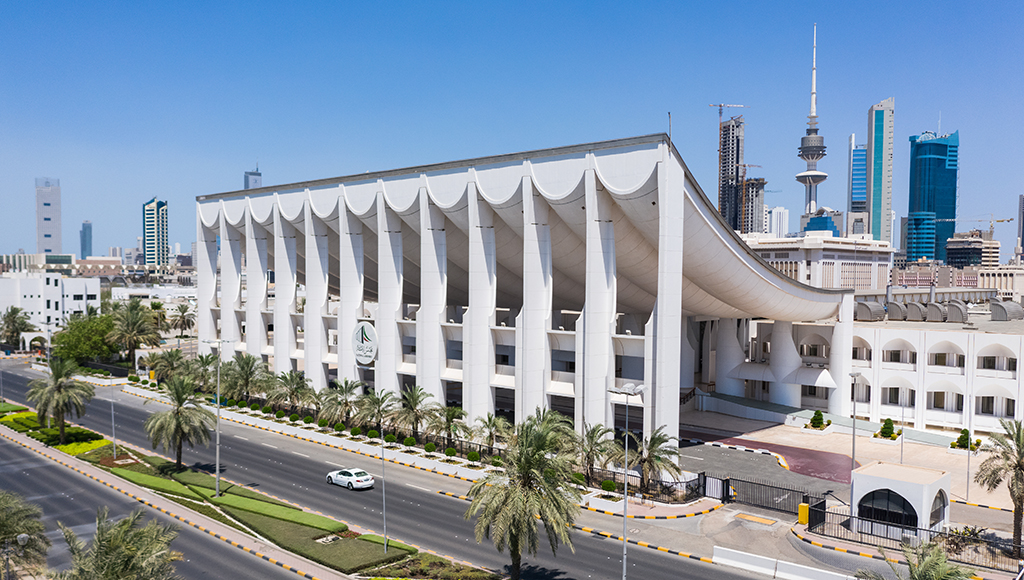By B Izzak
KUWAIT: Expatriate quotas are now a priority for candidates running in the upcoming National Assembly election. Candidates from all movements and of all political ideologies are adamant in applying it, especially since the population of expatriate workers is increasing despite there being no need for them, while marginal workers are become a majority over skilled expatriate workers.
Many candidates' campaigns have insisted that this issue is of great importance in the next National Assembly, while issues that were approved in parliamentary committees in the previous Assembly in the presence of the government but were not discussed will be adopted. The candidates pointed out the government must cooperate with these suggestions, because its efforts to reduce the number of expats to less than 30 percent of the population have not been successful, as evidenced by the latest statistics released by the Public Authority for Civil Information.
Some proposals from former lawmakers and candidates who are expected to be elected call to set priorities, including taking a serious step to address the demographic imbalance by setting quotas, stressing the government's fears of applying the quota and its reluctance to implement it are not justified, especially since the largest communities in Kuwait have marginal workers that are not needed or can be replaced by workers from countries whose nationals in Kuwait are low in number.
The proposals also point out that children of expatriate workers exceed 700,000, which is a national security concern and places a burden on authorities on how to deal with them in case of any problems in the future. They said these communities are concentrated in some areas that could threaten the stability of the country, with rising crime and an increase in residency violators.
They said fears of upsetting friendly countries by reducing the numbers of workers of some nationalities should not be an obstacle to implementation, because the matter is first and foremost of Kuwait's supreme interest and sovereignty and not of courtesy, no matter how sisterly those countries are. Candidates have stressed that this issue is going to be a priority in the elections as it correlates with the current phase of reforms.
The candidates stressed that applying a quota does not mean getting rid of expatriates, as this is very difficult in Kuwait, but what is required is to rearrange their numbers, so that no community exceeds 25 percent of the number of Kuwaitis. For example, both the Indian and Egyptian communities exceed 650,000 (excluding domestic workers), compared to 1.5 million Kuwaitis.
If quotas are implemented, the population of these two communities will not exceed 300,000 each, they said, indicating that the implementation of the quota could be easier after the approval of the new residency law proposed in the previous parliament. The law will be examined again as government is keen to resubmit it and the National Assembly is eager to approve it.
Meanwhile, the administrative court starts from Thursday to look into petitions filed by a number of candidates who have been disqualified to run in elections by an interior ministry special committee. The court's decision can also be challenged before the court of cassation, the country's top court. The final verdicts by the courts must be issued before the election day on Sept 29.
The interior ministry informed 15 candidates that they have been barred from running in the election over a variety of reasons, mainly political. A number of the barred candidates lashed out at the interior ministry, insisting the decisions are against the law. Former MP and candidate Abdullah Al-Barghash, who was disqualified, claimed the decisions were taken on Sept 7, but the minister kept them with him for six more days, which could negatively affect the position of the barred candidates. He said the minister's action amounts to interference in the election process.
Another barred candidate, Musaed Al-Qarifah, charged that the ministry used a corrupt political law to punish the barred candidates, some of whom had already been cleared by the court. Former MP Jamaan Al-Harbash, who cannot contest the polls because of the law, said the interior ministry's decisions to disqualify candidates is unconstitutional.
Two more candidates withdrew from the race on Wednesday, raising the number of withdrawals to 15. As a result, the number of candidates who are contesting the polls has now dropped to 352 hopefuls. The door for withdrawal will remain open until Sept 22.
Candidates continued their campaigning, highlighting many political, social, economic and other issues. Candidate Shuaib Shaaban, contesting from the second constituency, said the Kuwaiti people had been the victim of the conflict between the Assembly and the government, adding the old era has gone and now the country has entered another era, during which differences should be avoided.
Former MP Marzouq Al-Hubaini, running from the fifth district, said if a reformist majority is elected, the next Assembly can adopt bold legislation like the independence of the judiciary, allowing courts to hear cases on Kuwaiti citizenship. He however insisted that "the group of thieves and corrupt people will not give up". Candidate Hasan Ali, seeking to win a seat from the third constituency, said influential corrupt people are still active and cautioned against them.


